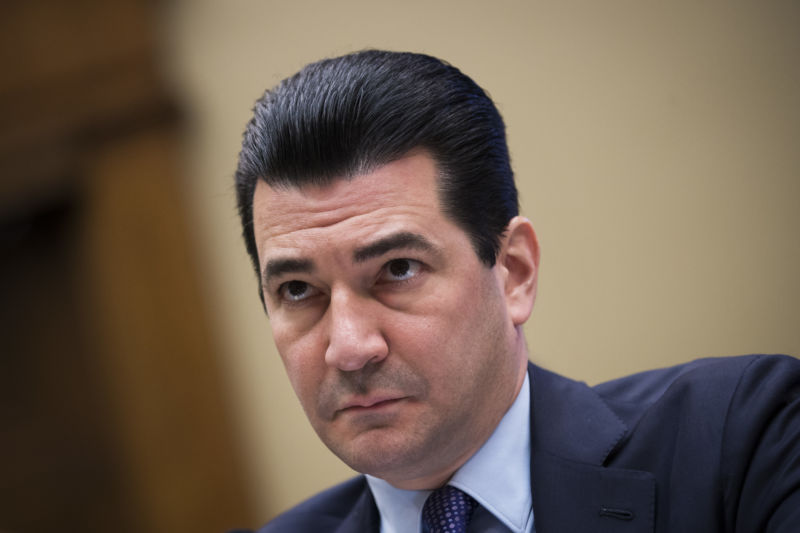FDA to start naming names of pharma companies blocking cheaper generics
https://ift.tt/2InaQiu

Dr. Scott Gottlieb, commissioner of the Food and Drug Administration, ready to name and shame.
The Food and Drug Administration plans this week to effectively begin publicly shaming brand-name drug companies that stand in the way of competitors trying to develop cheaper generic drugs.
FDA Commissioner Scott Gottlieb told reporters on Monday and Tuesday that the agency will unveil a website on Thursday, May 17 that names names of such companies. More specifically, the website will publicly reveal the identity of 50 branded drugs and their makers that have blocked generic development. The website will also be updated “on a continuous basis” to list additional names.
In fielding questions from reporters, Gottlieb denied that the effort was a form of public shaming. “I don’t think this is publicly shaming,” Gottlieb said, according to S&P Global Market Intelligence. “I think this is providing transparency in situations where we see certain obstacles to timely generic entry.”
But as S&P points out, Gottlieb had a different take on such tactics in a May 25, 2017 congressional hearing, in which he said he was “happy to work” on “a shaming initiative.” The comment was in response to Rep. David Young, R-Iowa, who noted that: “There is a power in shaming. Sunlight is the best disinfectant to put people in place and to try to get to a better behavior.”
Shaming or not, getting better behavior is certainly the FDA’s goal for the upcoming website. Gottlieb said he hoped that it would deter companies from abusive practices that are “antithetical to the spirit, if not the letter” of the law behind the generic drug industry—aka the Hatch-Waxman Act.
The key abusive practice that the FDA’s website spotlights is the tactic of brand-name drug makers to withhold samples of their drugs from generic drug makers. Without those samples, generic drug makers cannot perform bio-equivalency testing necessary for regulatory approval. The brand-name drugs seem to withhold samples in at least one of two ways.
Disinfecting light
The first is that they can effectively hide behind FDA drug safety programs, called risk evaluation and mitigation strategies or REMS. These are programs to ensure that drugs with serious side effects are used safely, which can sometimes limit when, where, and how a drug is delivered. With a REMS in place, the brand-name drug maker may claim that the safety program hampers their ability to provide samples to generic developers.
In this case, generic drug makers often turn to the FDA to ask—in written letters—if such a REMS is in place for a drug and if it indeed prohibits the maker from providing samples. It is these inquiry letters that reveal to the FDA which brand name drugs are being withheld. The 50 names to be released on the website Thursday will in fact be revealed via more than 150 such inquiry letters that the agency has received.
In response, the FDA sometimes writes letters to brand-name drug makers—at the behest of the generic company—that essentially give the brand-name company the green light to release the drug. But Gottlieb noted this week that the FDA plans to begin simply offering generic drug makers waivers that override any REMS restrictions that branded drug makers claim inhibit access to drug samples.
The second method branded drug companies use to withhold samples is to add contract provisions with drug distributors that prevent them from delivering samples to generic competition.
In speaking with reporters, Gottlieb said he hoped the website and the agency’s other efforts would dig up the “root cause” of the issue—whether it be REMS or distribution—and squash bad behavior. “And if it does, I think that’s a useful public health outcome,” Gottlieb said.
Tech
via Ars Technica https://arstechnica.com
May 16, 2018 at 08:13AM
